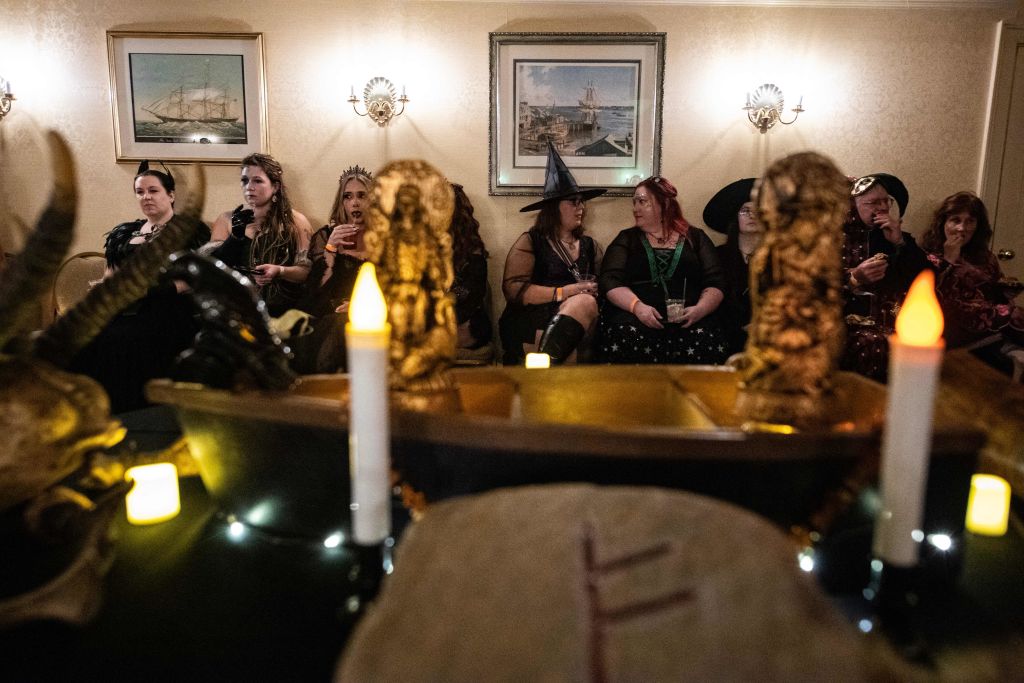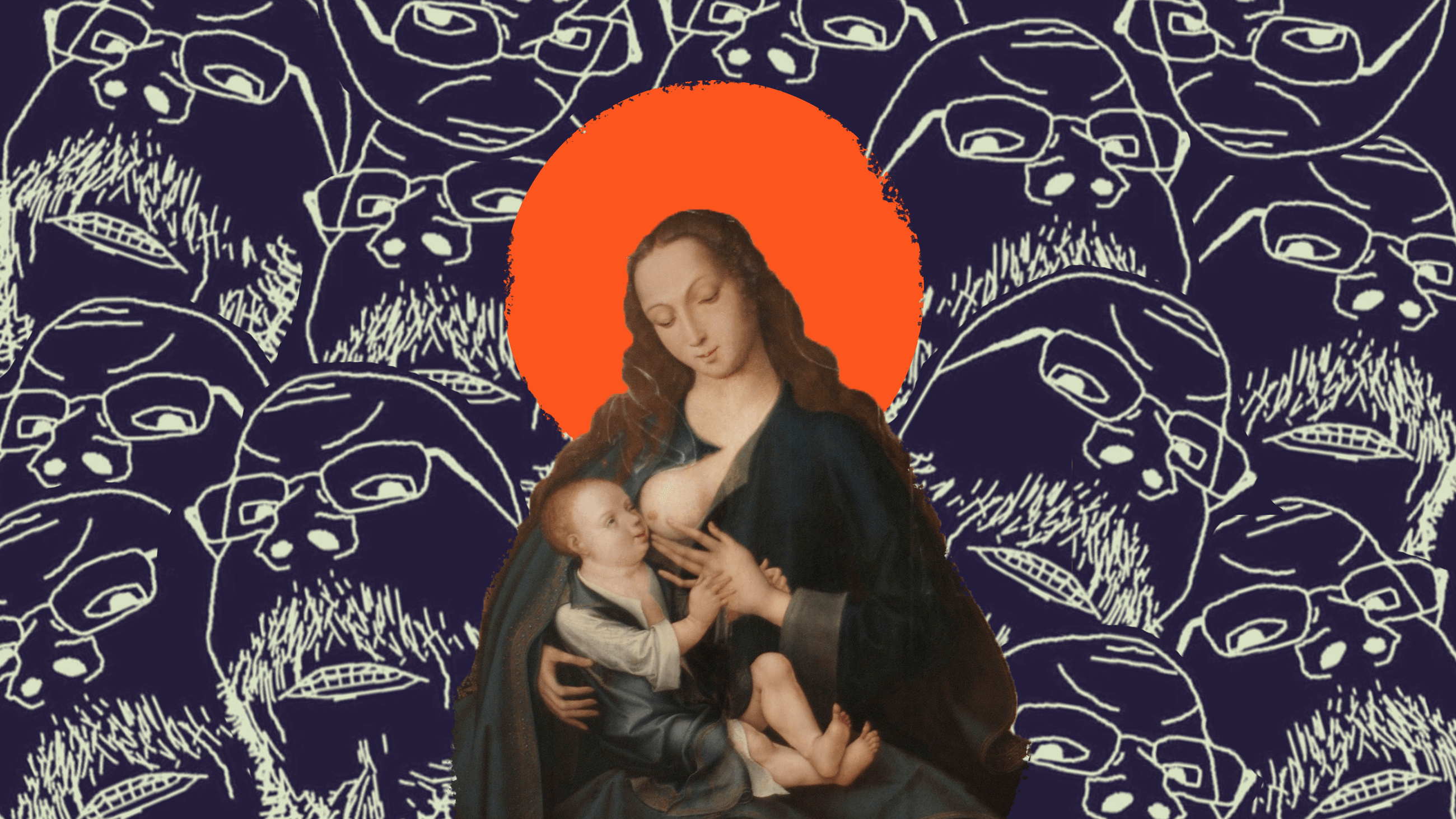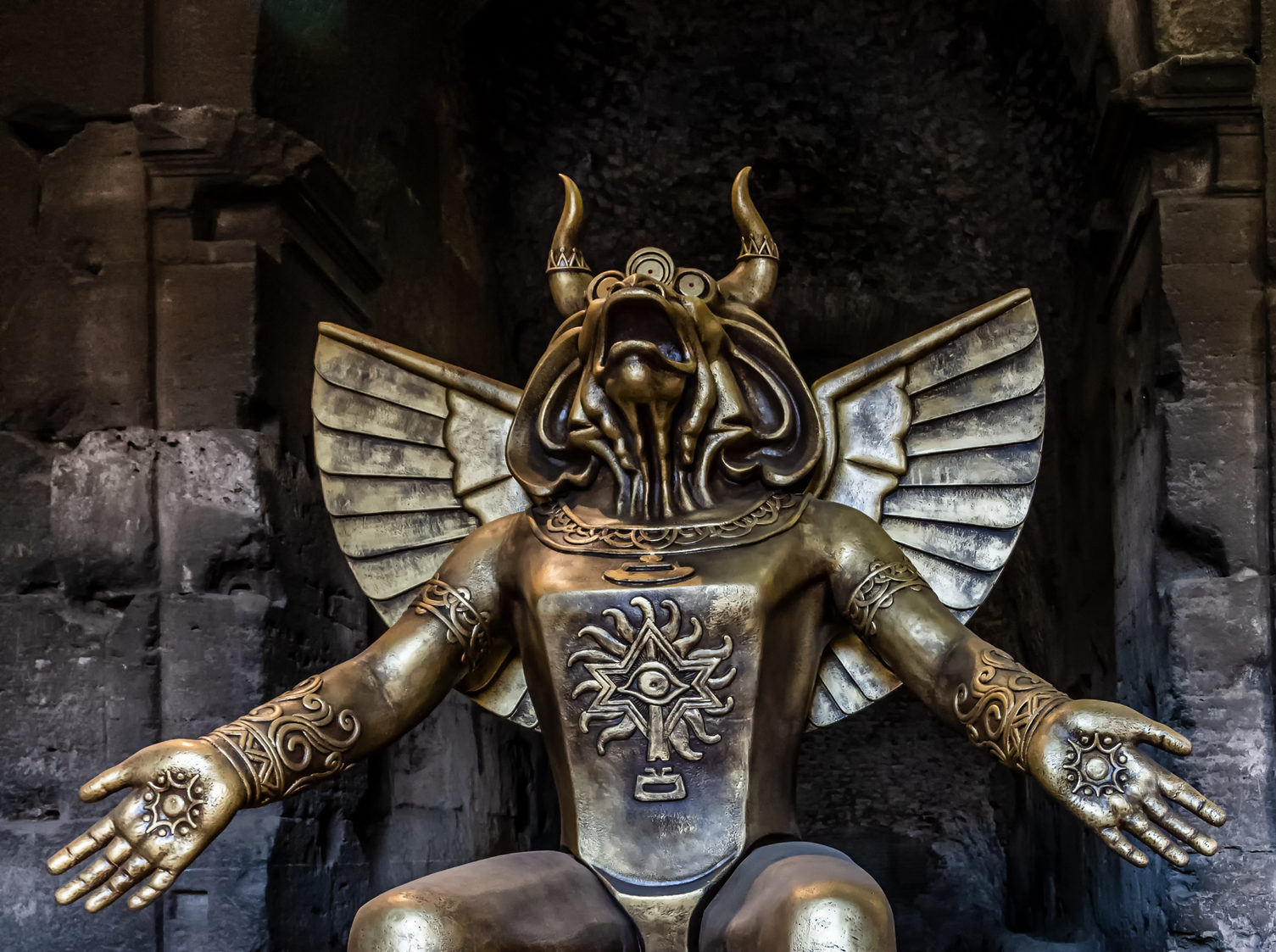Liberal feminism relentlessly aggresses against the female body and soul.
Soft Occultism

Young women looking for meaning are enchanted by a new paganism elevating ego and material desire.
One Saturday evening around sunset I went to a local coven for a potluck dinner in celebration of Samhain, a Celtic holiday that is similar to the Mexican Day of the Dead. I wanted to see what the self-identifying witches were up to after becoming bothered by the proliferation of occult-ish language used by my friends—and, increasingly, me—in everyday conversation.
A few of the attendees wore capes for the ritual celebration, while the rest of us had bundled up for the autumnal gathering. I brought gluten free cookies in a tin and, before the ceremony started, happily chatted with other attendees about herb foraging and the spiritual energy of different houses.
The coven leader gave a pre-ritual speech about connecting to the earth while standing barefoot in 40 degree weather—I respected her dedication. There was also some discussion about what herbs and tools were most beneficial for protection against any “unwelcome ancestors” who may stop by. She talked about meditation, openness, and intentionality.
The similarities between the language used by the coven and among my own decidedly non-witch friends was striking. “Are we accidentally practicing witchcraft?” I wondered to myself.
Like many women my age, I put together vision and mood boards. I have an Aquarius coffee mug. I write affirmations on my mirror and listen to YouTubers who describe how to live a “soft life,” champion “dark feminine energy,” and live abundantly.
Videos called, “Elevate your lifestyle,” “Channel Divine Femininity,” or “Leverage your light feminine energy” entice us. Lessons on how to become “magnetic” or “that girl” flood TikTok and Instagram, especially in the months leading up to the new year. We call our wants out to the “energy of the universe” using language of affirmation, and try to align our subconscious mind and mental energy to bring that goal about.
The closest chain bookstore to my house sells a box of “78 Crystals to Energize Your Life” or three “good vibes healing stones” for just $32.95. A box of affirmation note cards promises that “the universe is in your hands,” and titles like The Astrological Self-Care Journal, Crystals for Mom, and Goddess Magic offer energy guidance. A host of Tarot and horoscope-themed candles, notebooks, and writing accessories are available for your next journaling session.
It’s easy to have a laugh at the obvious consumerism behind all this woo-woo, Ouija-board spiritualism. But it’s a mistake to dismiss the tacky and often silly mystical drapery without considering the genuine longing for meaning that it conceals.
The new, default spiritual identity for young people in the West is soft occultism, or casual witchery. This identity can easily accompany an existing religious affiliation, and often does since it is so obviously integrated in most aspects of modern Western culture.
Generation Z has the same spiritual appetite as our ancestors, but we lack the infrastructure to exercise it. According to the American Enterprise Institute, American religious identity has experienced nearly three decades of consistent decline. Research has consistently shown that every generation of adults is somewhat less religious than the generation that preceded it. A similar decline in religious affiliation has been observed in the United Kingdom,
Out of this religious apathy, interest in the occult has blossomed and mixed with our wellness and self improvement culture.
Lifestyle gurus and inner-peace peddlers from Gwyneth Paltrow to Andrew Tate are happy to make money off lost, irreligious young people hungry for emotional balance and purpose. Their approach borrows from the language of self-fulfillment and the actualization of material desire common to Oprah and prosperity gospel preachers such as Joel Osteen. The result is a culture of self-worship and a belief in the power of the will to manifest good things for ourselves.
Within soft occultism, we become the main characters. We feel that we can uncover hidden knowledge of ourselves. We can better understand our true nature, if we only surrender our souls to personality quizzes and horoscope apps. These tools offer us assistance in navigating daily life, replacing or largely supplementing surrender and devotion to a particular God.
Surveys and scientists have repeatedly found that people who have religious beliefs, especially those who attend a formal house of worship, tend to be happier than those who don’t.
Despite this, soft occultists prefer to buy purifying green juices and participate in pseudo-religious gatherings. They go to Pilates class but not church, meditate on personal energy but don’t pray. Take vitamin supplements but not communion. Sit through therapy but not confession.
This spiritual behavior comes from very normal desires: Calmness, control, and purpose.
Modern life chains us to illuminated screens, containing endless comparisons and new information. Just as Tudor scientist John Dee, mystic advisor to Elizabeth I, used a spirit mirror to divine information, we look to our own, shiny, portable information glasses to abstract us from our present reality and serve up meaning.
Occult-adjacent practices can be actively harmful, generating a false version of reality in which the self is both creator and arbiter.
Who is at fault for soft occultism? A failure of religious institutions and families to communicate essential values and consistent practice to new generations has produced a generation of spiritually hungry occultists. The real solution is living within reality: community life with friends, family, spouses, and ultimately the Church, which lies at the heart of it all. These institutions need to prioritize reverence and community to give purpose to the lost and friendship to the lonely.
If we continue to shrug off soft occultism, our vulnerable young people will continue to adopt new and ever stranger habits or dogmas, often political ones, that serve their spiritual appetite but fall short of a lifelong philosophy for dealing with problems that we can’t manifest away.
The American Mind presents a range of perspectives. Views are writers’ own and do not necessarily represent those of The Claremont Institute.
The American Mind is a publication of the Claremont Institute, a non-profit 501(c)(3) organization, dedicated to restoring the principles of the American Founding to their rightful, preeminent authority in our national life. Interested in supporting our work? Gifts to the Claremont Institute are tax-deductible.
Pro-abortion reactions to the Dobbs leak reveal idolatry for what it is.
What I saw at Vibecamp.



